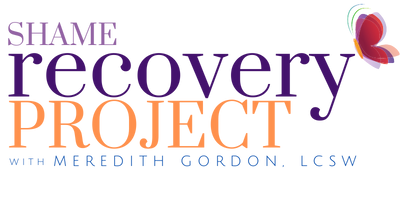Dear Parent,
Are you waiting for your grown child to grow up? Are you ashamed of them and yourself? Do you need help practicing how to stop enabling a highly dependent adult—because you love them.
Have you waited and counted the hours to seize control of their growth and maturity? Have you contorted yourself into commandeering the situation, only to discover that you have increasingly less power? Has your child changed much? Has your life suffered?
All your doing likely started when you got uncomfortable with the way your child struggled, or the way they did or didn’t do something.
Forgive yourself.
The roots of your “doing” developed without you realizing it. You didn’t know, see or understand how a singular, trying-to-help behavior could snowball into a complex emotional and actual web of anxiety and resistance. For a time you couldn’t see the problems compounding, multiplying, and proliferating—you were so hopeful something would stick. Instead you got stuck in a pattern.
You would have stopped a long time ago if you really understood that what you were doing was keeping everyone stuck.
Forgive yourself.
Instead, reflect on the power of your misguided behaviors. Honor their power. Yes, their power. In some alternative universe, the actions you took might have been appropriate (though likely not) but they have backfired. Take their “potency” very seriously.
You may have started with good intentions for your child, but time has proven that what you’ve done hasn’t worked, nor will it, and has possibly severely limited someone you love. Take off the veil of denial.
And when the veil comes off, stop feeling ashamed of your child and of yourself. This is a moment for learning. See your adult child as an individual and not as an extension of you. Seeing them as an extension becomes their burden even if you thinking you are helping. It’s a distraction for them and for you, too. No adult wants to feel like their parents see them as incapable.
A look at the research
I wrote about this issue for Psychology Today. Here is the link to that piece, and an excerpt:
Eli Lebowitz of the Yale Child Study Center in his research published (pre-pandemic) in the Journal of the American Academy of Child and Adolescent Psychiatry1: When parents “make sporadic attempts to modify the situation and not accommodate the child,”1they are often “met with expressions of anger, betrayal, and aggression… these high-emotion reactions and bursts of outrage and indignance put the parents into full retreat.”1 The cycle continues, however, to no avail. Problems intensify. Except the parent’s resentment and their feelings of impotency get worse. They keep trying to get their child to “grow up.” But they are already grown up.
Dr. Lebowitz’s research shows there are crucial things that parents can do1:
- “Embracing the systemic nature of the dependency trap they have become embroiled in.”
- “Extricate themselves from the quagmire of accommodation and resentment and move from a position of helpless frustration to one of actively helping themselves and their child.
So, how can we translate these recommendations. Here are a few things to do that lay the groundwork for parents:
- Understand you need to change how you view your adult child.
- Know that you can still have your feelings, but try to view them (and yourself) as more whole.
- Remember that when your child is an adult, there is no more parentingwork left to do:
a. The time to raise, teach, imbue, educate, and [fill in the blank] is over.
b. It was over long ago. - Keep in mind that the problem is no longer about “parenting”—it is about how you view your role as a parent.
- Think of your relationship as one of adult-to-adult rather than of parent-to-child as this gives the relationship a needed equality (inside you)
- Worry less about making sudden changes and concern yourself more with understanding what motivates YOU to want to “raise” your adult child.
- Ask yourself if you are a walking premeditated-resentment factory? It is costing you friends as well as a relationship with your adult child?
- Ask yourself if you are unintentionally enabling your adult child.
- Be curious about if you ask leading questions to try to get your child to respond the way you think is correct.
- Keep the focus on yourself—you deserve the attention you need that only you can give.For
- For more relief if you’re troubled by your interactions with your adult child, read: How to Stop Enabling the Highly Dependent Adult Child: 39 Days of Recovery, available at Amazon.
Photo by Simon HUMLER on Unsplash
